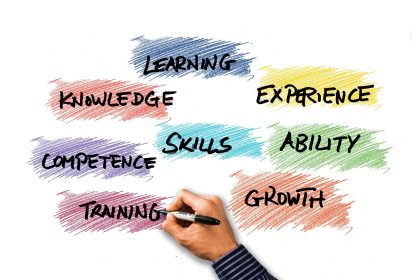In the last blog, empower and empowerment were defined and then explored as part of coaching. Coach training involves a paradigm shift from giving solutions to empowering the client to discover and create their own strategies.

There are Core Coaching Competencies from the International Coach Federation covered in coach training that all support empowering the client. The details in nine of them call out specific ways to empower clients:
- Establishing the Agreement includes empowering the client each session to choose both what they want to discuss and how they want to have the conversation.
- Establishing Trust and Intimacy includes showing genuine concern, demonstrating respect, and providing ongoing support.
- Active Listening states that the coach encourages, accepts, explores, and reinforces the client’s expression of feeling, perceptions, etc.
- Powerful Question says to ask clients questions that move them toward what they want.
- Direction Communication involves using language that is appropriate and respectful.
- Creating Awareness had the coach help clients discover for themselves.
- Designing Actions includes promoting active experimentation and self-discovery, celebrating successes and capabilities, and encourages stretches and challenges plus a comfortable pace of learning.
- Planning and Goal Setting include helping the client identify and access resources plus targeting early successes.
- Managing Progress and Accountability includes acknowledging the client, promoting self-discipline, and developing the client’s ability to make decisions, address key concerns, develop themselves, determine priorities, set the pace of learning, plus reflect on and learn from experiences.
The value of coaching with a professional who has completed their coaching certification is found in how it empowers individuals to grow, create meaningful change, and achieve what they want – in other words, they are empowered and develop their own empowerment.




